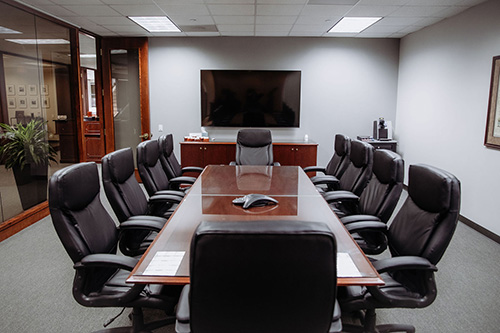 Heard & Medack is a Texas litigation firm.
Heard & Medack is a Texas litigation firm.
Simply put…we try cases. We handle cases all over the great State of Texas and focus on defending our clients at trial and at every step of the way up to trial. Virtually none of our clients ask to get involved in civil litigation, but they all appreciate that our sole effort is defending them throughout the process.
Our practice covers the entire spectrum of civil litigation from pre-suit notice of a possible claim to the reading of the jury charge and post-verdict motions. As litigators, we place a special emphasis on our ability to effectively represent our clients at trial. In order to properly prepare a case for trial, a lawyer must first know how to try a case. While this concept may seem elemental, we believe it is what separates lawyers from trial lawyers. As trial lawyers, it is our job to think several moves ahead. We must be able to see the forest and each of the trees. Our representation of each client must be aggressive, but also flexible and adaptive enough to address the unknown variables that come up with each new case. We must be ready to move as quickly or as judiciously as each client’s case dictates.
 Formed in 1998, Heard & Medack, P.C. has always stayed on top of the latest technologies. Doing so has allowed us to constantly improve our communications with our clients. In any form of legal representation, client communication is important. In the fast-paced arena of civil litigation, it is vital. Advances in technology also assist us in conveying our client’s positions to juries. As with anything, our evidence must be clear, understandable and even entertaining if we want the jury to give it the weight it deserves. Our use of technology helps us accomplish these goals for our clients and do so in a cost-effective manner.
Formed in 1998, Heard & Medack, P.C. has always stayed on top of the latest technologies. Doing so has allowed us to constantly improve our communications with our clients. In any form of legal representation, client communication is important. In the fast-paced arena of civil litigation, it is vital. Advances in technology also assist us in conveying our client’s positions to juries. As with anything, our evidence must be clear, understandable and even entertaining if we want the jury to give it the weight it deserves. Our use of technology helps us accomplish these goals for our clients and do so in a cost-effective manner.
Technology allows us to cost-effectively manage cases all over the State of Texas. Email, electronic filing, teleconferencing and videoconferencing afford opportunities for us to manage cases, attend hearings and depositions in remote parts of the state while limiting travel time and related expenses.

 Heard & Medack is a Texas litigation firm.
Heard & Medack is a Texas litigation firm.